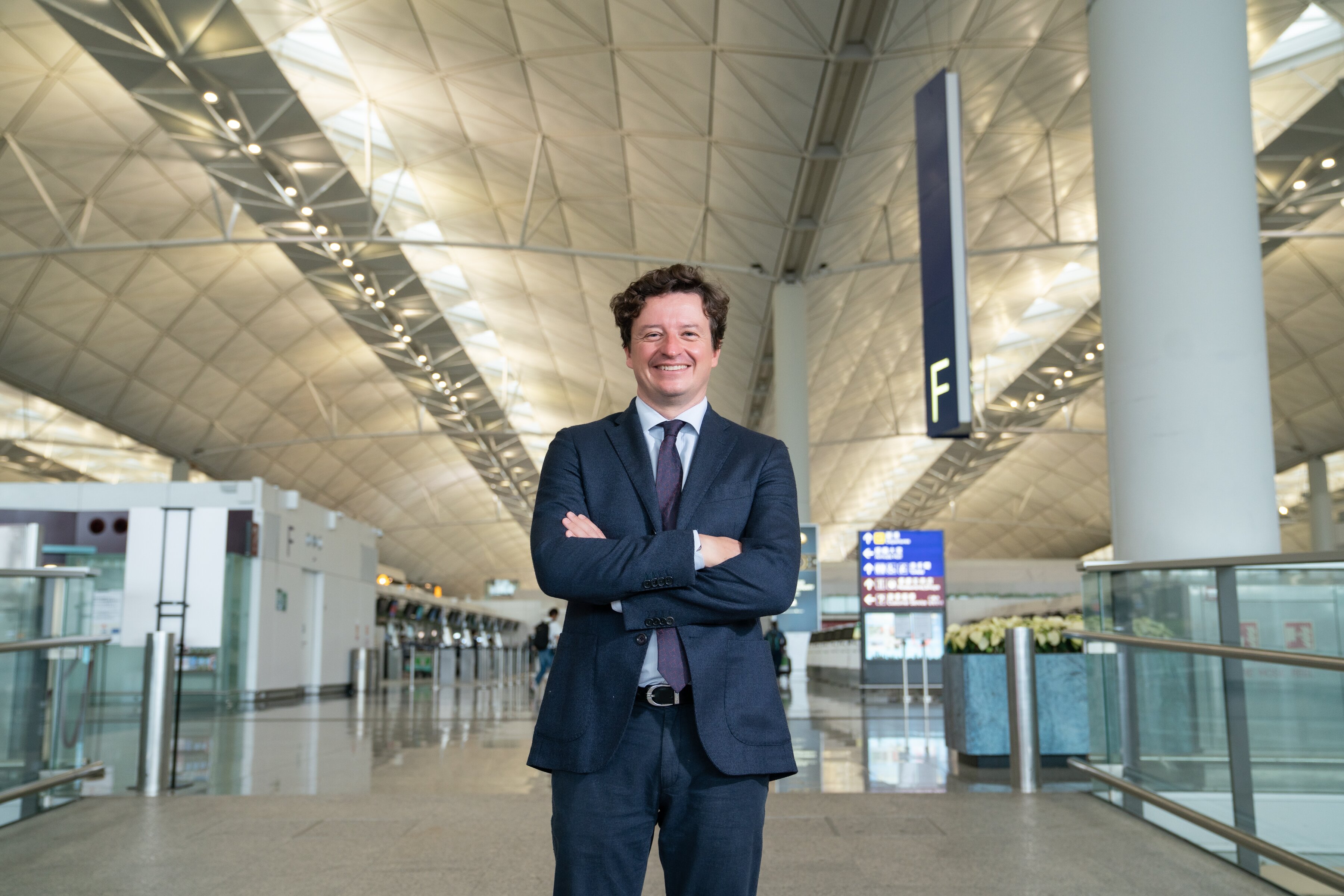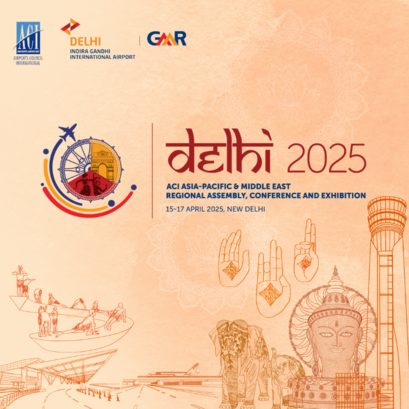View from the Top
- 2024-12-23

Stefano Baronci, Director General, ACI Asia-Pacific & Middle East
2024 has been a significant year for ACI Asia-Pacific & Middle East (ACI APAC & MID), marked by key achievements across our advocacy areas.
From advocating to liberalised aviation policies to driving regional alignment at the Asia-Pacific and the Middle East DGCA Conferences, our strategic initiatives have positioned ACI as a leading voice in addressing the evolving needs of the airport sector. Additionally, we made significant strides in advancing environmental initiatives, unveiling impactful connectivity rankings, and advocating for infrastructure development to secure the long-term success of airports across the region.
A key highlight was the endorsement of the MID-Air Transport Strategic Plan 2025-2040 by ICAO Middle East. As co-rapporteur for this initiative, ACI APAC & MID, in consultation with member airports in the Middle East, provided recommendations to enhance regional connectivity, infrastructure development, safety, security, and environmental protection.
Our recommendations were aimed at boosting regional connectivity through necessary policy adjustment and infrastructure development, while ensuring transparency and consultation with stakeholders in taxation, highest standards of safety, security, air navigation efficiency, and environmental protection.
The MID Region Air Transport Strategic Plan 2025-2040 was endorsed by all ICAO Middle East member States.
At the Asia-Pacific level too, we reiterated our call for economic sustainability and financial resilience as critical components for infrastructure development to support the anticipated growth in the region’s air transport sector. We are pleased to note that several states supported our recommendations, with ICAO also encouraging their adoption.
Security remained one of the priorities. One notable milestone was India’s decision to pilot domestic One-Stop Security at Delhi, Bengaluru and Mumbai airports. This achievement reflects our ongoing collaboration with the Bureau of Civil Aviation Security and our commitment to enhancing security efficiency.
Airport Economics
This year, we launched the second edition of the Airport Connectivity Report, providing a valuable benchmark for improving air connectivity in the region. To broaden the benefit of the connectivity programme, we held cusomised workshop in Bahrain, helping them assess the current landscape and explore opportunities for growth.
Higher Airfares
While passenger numbers in Asia-Pacific are returning to pre-pandemic levels this year, many travelers are paying significantly more, especially on domestic routes. This indicates that the demand for air travel is likely higher than in 2019. We must ensure that rising airfares do not become a barrier for air travel. Airfares result from a complex pricing system set by airlines, influenced by demand and supply, price elasticity, competition on any given route. For example, routes that are reliant on a single airline saw fare increases of over 25%, while those with steady competition experienced only about a 10% rise.
It is important to note that the increase in airfares is not related to airport charges. Considering the airlines' cost structure, fuel prices and inflation have a much greater impact than airport charges. For a long time, airport charges have represented a stable component of airlines' operating costs, averaging around 4%. From 2019 to 2024, airport charges have decreased by 7% for domestic flights and increased by only 6% for international flights, making their influence on the recent spike in airfares in the region negligible.
Effective Economic Regulation
At the ICAO Workshop on Airports and Air Navigation Services Charges in Doha, we called for more effective economic regulation strategies that can enable socio-economic growth, sustain operational excellence, and meet future capacity needs while maintaining a sustainable, competitive aviation ecosystem.
Commercial Business
In October, ACI APAC & MID surveyed its airport members to assess the commercial business trends in 2024. Passenger traffic has rebounded unevenly due to different reopening speeds, with some markets growing more than 10% above 2019 levels. While commercial revenues at some airports have surpassed pre-pandemic levels, nearly half (48%) are still recovering, with gaps of 10% to 30%. Average passenger spending also remains below 2019 levels for most airports.
International passengers stand out as key revenue drivers, spending significantly more than domestic travelers. At 45% of airports, international passengers spend over 200% more, underscoring their economic importance and the need for policy support.
To explore these trends further, ACI Asia-Pacific & Middle East will partner with the Asia Pacific Travel Retail Association (APTRA) in 2025 for a detailed analysis of international passenger spending and its industry impact.

Sustainability Leadership
Sustainability remained central, with the launch of our new programme, Net Zero Roadmap, designed to assistairports develop a plan to achieve net zero goals. This programme aligns with the Airport Carbon Accreditation initiative, which we continue to promote across the region, leading to increasing participation from our members. We have made great strides by signing contracts with Riyadh Airports Company and Mactan Cebu International Airport. We are also embarking on a new study on climate resilience.
Leadership and Governance Updates
We celebrated new leadership with the election of Mr. SGK Kishore as the new President of ACI APAC & MID, with his two-year tenure set to commence from January 2025. Our Board also has an impressive lineup of Executive Committee and new members.
The Newly elected Board Directors are Mr. Cyril Girot (CEO, Cambodia Airports), Ms. Elena Sorlini (MD & CEO, Abu Dhabi Airports), Dato' Mohd Izani Ghani (MD, Malaysia Airports Holding Berhad) and Mr. Yam Kum Weng (CEO, Changi Airport Group). Mr. Ali Salim Al-Midfa (Chairman, Sharjah International Airport Authority) who is currently serving as Second Vice President, has been reelected as Board Director.
There was a transition in the Executive Committee of the Board. The newly appointed members of Executive Committee are Mr. Fred Lam, Chairman (Airport Authority Hong Kong) Second Vice President; Mr. Akihiko Tamura (President & CEO, Narita International Airport) Second Vice President; and Mr. Gert-Jan de Graaff (CEO, Brisbane Airport Corporation) Secretary Treasurer. Meanwhile, Mr. Mohamed Yousif Al-Binfalah (CEO, Bahrain Airport Company) First Vice President, who is currently serving as Treasurer, has been relected into the Executive Committee as First Vice President. The new two-year term of the Executive Committee will commence from 1 January 2025. Their guidance will be instrumental in setting new objectives for our Association.
On the internal front, we were glad to see six new airport operators, two affiliates and 15 new World Business Partners join us during the year. As a result, ACI Asia-Pacific now has 134 airport members, managing and operating 624 airports across 47 countries/territories, and a strong line-up of 106 World Business Partners.
Lastly, I would like to wish all our airport members and World Business Partners a wonderful holiday season ahead.
- CATEGORY
- COUNTRY / AREA
- Hong Kong SAR
- AUTHOR
- ACI Asia-Pacific & Middle East









